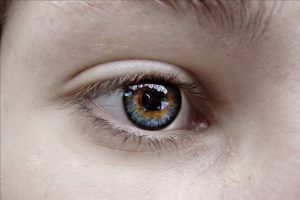
Who Wears Scleral Lenses?
Scleral Lens and Keratoconus Center, Providing Scleral Lenses for Patients From CITY 1,
Scleral lenses are traditionally used for patients with keratoconus and vision correction after eye surgery, but today, eye doctors utilize modern scleral lenses to treat many other eye conditions and disorders. Many of Scleral Doctor Name‘s patients who were previously unable to wear contact lenses or struggled with prescription eyeglasses can now experience comfortable, superior vision through scleral lenses.
What Are Scleral Lenses?
 Scleral lenses are specially-designed contact lenses, which are used to manage various eye diseases and visual conditions. These lenses hold artificial tears in a small area of the lens, like a tiny pool. The cornea coated with artificial tears remains moisturized for longer stretches of time than basic contact lenses.
Scleral lenses are specially-designed contact lenses, which are used to manage various eye diseases and visual conditions. These lenses hold artificial tears in a small area of the lens, like a tiny pool. The cornea coated with artificial tears remains moisturized for longer stretches of time than basic contact lenses.
Scleral lenses have a larger diameter than traditional lenses. This allows them to easily sit over a larger area of the eye without touching the cornea, ultimately increasing the patient’s comfort level. This can be especially helpful for patients who have had a corneal transplant since the cornea takes time to heal – up to one year – and is particularly sensitive during recovery time.
Because each patient’s vision, prescription needs, and corneal shape are different, scleral lenses are tailor-made for your specific case. Our scleral lens patients enjoy improved visual clarity and sharper focus.
Benefits Of Wearing Scleral Lenses
Scleral lenses from Scleral Lens and Keratoconus Center have many advantages over traditional lenses. Our patients enjoy wearing them for their:
- Comfort: Scleral lenses’ larger size and high-quality materials offer a greater level of comfort. The rigid materials allow for a round, smooth shape that gently sits over the eye and stay put, even with a lot of movement. Most patients can wear them comfortably for up to 14 hours.
- Consistency: Patients with irregular or misshapen corneas may find it difficult to wear soft contact lenses since they sit directly on the cornea. Sclerals reach over to the sclera (white part of the eye), avoiding the cornea completely.
- Cost-Effectiveness: Although scleral lenses usually cost more than basic soft lenses, they provide longer-term financial value. If your vision insurance plan includes contact lenses, the cost will be significantly reduced. Unlike traditional soft lenses, there is no need to continuously purchase lens solution and replacement lenses every few months. In the long run, it’s better value for your money.
- Durability: Scleral lenses’ rigid materials are breathable for proper air flow and long-lasting wear. Soft contact lenses, on the other hand, when overused, can lead to eye infections or worse!
- Sharper Vision: The smooth ocular surface functions as a replacement for the cornea, resulting in sharper, clearer vision. Like a camera focuses on the fine details of an image, sclerals give you improved visual acuity and sharp focus.
- Tailor-Made for YOU: No two patients are alike, and neither are the shapes of their eyes. Each person’s cornea has unique curves and contours. Those with corneal irregularities require a more specialized, custom-fitting to ensure the best fit for visual clarity. To do so, Scleral Doctor Name will create a digital map of your cornea through a process called “corneal topography”. The doctor uses a computerized system to take exact measurements of the cornea. This process ensures that the scleral lenses will allow the right amount of light in, giving you superior vision.
Scleral Lenses For Eye Disorders And Diseases
Scleral lenses are often used to treat eye diseases and conditions including:
High levels of refractive error, a condition where the eyes can’t focus clearly on images or objects. The most common types of refractive errors are myopia (nearsightedness), hyperopia (farsightedness), and astigmatism.
Keratoconus, a condition caused by an irregular-shaped cornea, resulting in blurriness, cloudy vision, and light sensitivity.
Dry Eye Disease caused by Meibomian Gland Dysfunction
Corneal Ectasia, a condition that can develop after vision correction procedures like LASIK. When this happens, the cornea thins out and bulges, negatively impacting your vision.
Corneal Dystrophy, a rare genetic eye disorder that causes material buildup in the cornea.
Ocular Surface Diseases
Post-Radial Keratology (RK), a surgical procedure used to treat myopia
Post Cataract Surgery
Corneal trauma, such as abrasions or scratches to the eye
Pellucid marginal corneal degeneration, a rare, degenerative eye condition, which makes the cornea gradually thin out, resulting in a slow decline of visual functions
Sjogren’s Syndrome, an autoimmune disorder affecting the glands of the eyes and mouth that normally secrete moisture, resulting in severe dryness
Stevens-Johnson Syndrome (SJS), a rare, but serious condition usually caused by a reaction to infection or medication, causing blisters externally and internally, including red, watery, and sore eyes
If you suffer from any of these diseases or their symptoms, speak with our helpful staff at Scleral Lens and Keratoconus Center. Let us help you live a higher quality of life with better, more comfortable vision.
 Scleral Lenses For Eye Allergies
Scleral Lenses For Eye Allergies
Do you have allergic reactions to pollen, dust particles, smoke, or pet dander? If you have persistent red, itchy, watery, and sore eyes, scleral lenses may help. Because they cover a large area of the eye, they can ease some of your allergy symptoms. That’s because the outer layer of the lens protects the eye surface, so dust and pollen can’t reach it. While not a complete barrier against airborne allergens, scleral lenses can minimize the reactions to these allergens, giving you more relief.
Are Regular Contact Lenses Not Working For You?
Maybe your regular lenses are uncomfortable, maybe your eyes are dry and itchy, or maybe your vision isn’t as clear as you’d like it to be. If you’ve tried standard soft contact lenses and you still experience blurry or distorted vision, it may be time to try something else.
Even if you’ve been told that your cornea isn’t suitable for contacts, don’t give up – you may be a great candidate for scleral lenses. Talk to Scleral Doctor Name about a consultation for sclerals. A detailed eye exam and medical history may be done in order to determine the best course of action for you.
Contact Us
Ready to get fitted for scleral lenses or need more information? Schedule a consultation with Scleral Doctor Name and we’ll help find the best solution to treat your condition. Contact Scleral Lens and Keratoconus Center today and let us help you get the proper care and visual clarity you deserve.
Our practice serves patients from CITY 1, CITY 2, CITY 3, and CITY 4, and surrounding communities.





